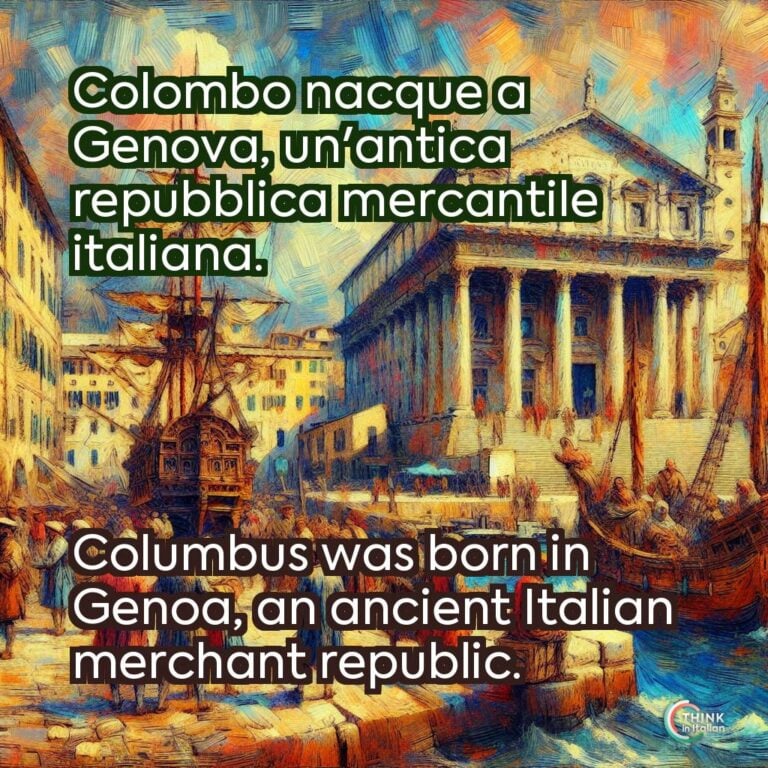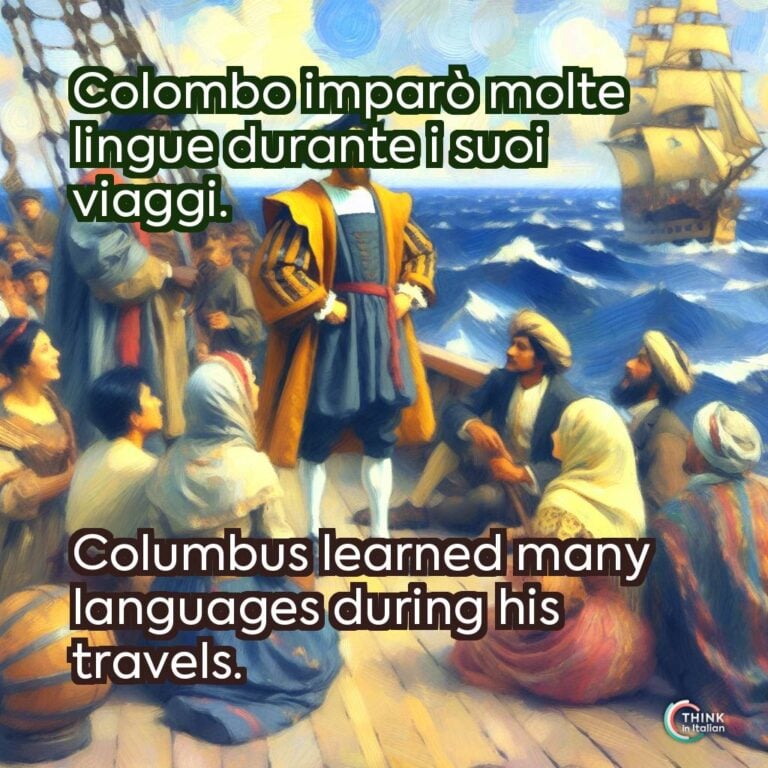Who was Christopher Columbus?
Christopher Columbus (Cristoforo Colombo in Italian) is a figure of immense historical significance. Yet, the question of his origins remains a topic of fascination and controversy.
Most historians agree that Columbus was born in 1451 in Genoa, an independent maritime republic in modern-day Italy. He was the son of Domenico Colombo and Susanna Fontanarossa.
Genoa’s thriving trade and seafaring culture likely inspired Columbus’ fascination with exploration: he began his maritime career as a teenager, participating in trading expeditions across the Mediterranean.
In 1476, he arrived in Portugal, where he married Filipa Moniz Perestrelo and settled for several years. This marriage strengthened his ties to Portugal, where he also refined his navigational skills and developed his plan to reach Asia by sailing west.
After being turned down by the courts of Portugal and England, Columbus secured support from Spain’s Catholic Monarchs, Ferdinand and Isabella.
Under the Spanish flag, he embarked on the voyage across the Atlantic Ocean in 1492, which marked the beginning of European exploration and colonization of the Americas, reshaping global history.
Was Christopher Columbus Italian?
As I mentioned before, the strongest evidence suggests that Christopher Columbus was born in Genoa. Legal documents from Genoa support this claim.
These records identify a Cristoforo Colombo born in 1451 to Domenico Colombo and Susanna Fontanarossa and include property deeds and a will, aligning with key details of Columbus’ life.
There also exists a letter sent in 1498 to the Spanish monarchs where Columbus referred to Genoa as his birthplace, stating: “From there I came, and there I was born”.
This evidence, including his own direct acknowledgment, further solidify the theory of Cristoforo Colombo’s Italian heritage.
Alternative Theories
Was Christopher Columbus Spanish?
Despite the evidence of Columbus’ Genoese heritage, alternative theories suggest he may have been Spanish. He spent much of his life in Spain, serving the Spanish crown, writing in Castilian (medieval Spanish), and often signing documents as Cristóbal Colón.
However, it might be the case that Columbus likely adopted Castilian due to his long residence in Spain and his need to communicate with Spanish officials. Linguistic preferences alone are insufficient to prove his birthplace.
Was Christopher Columbus Portuguese?
Columbus married into Portuguese nobility, a union that some argue would have been unlikely if he were a foreign commoner. A theory even suggests he was the illegitimate son of a Portuguese noble and changed his identity after a naval battle.
There is no concrete evidence linking Columbus to Portuguese nobility. His time in Portugal is more plausibly explained by his career as a sailor and merchant.
Other Theories
The 15th century was a time of poor record-keeping, and many documents from Columbus’ era have been lost or destroyed. This lack of evidence leaves room for competing theories.
Some claim Columbus was Catalan, citing his use of Catalan phrases and customs, while other theories link him to Greece, although these are based on cultural or linguistic evidence that lacks substantial support.
Recent advances in science may offer new insights into Columbus’ origins: in 2021, researchers at the University of Granada launched a project to analyze Columbus’ DNA.
By comparing his genetic material with populations from Genoa, Spain, Portugal, and other regions, scientists hope to resolve the question of his ancestry definitively.
Christopher Columbus: Italian by Birth, a Citizen of the World
While the debate over Columbus’ origins continues, his impact on history transcends national boundaries. He is an iconic figure, particularly among Italian-Americans who celebrate Columbus Day as a tribute to his contributions to global history.
Based on available evidence, Christopher Columbus was most likely born in Genoa. However, his life as a sailor and his service to the Spanish crown led him to adopt multiple cultural identities, reflecting the fluid nature of nationality during his time.
Columbus’ story is not just about his origins: it’s about an era of discovery that transformed the world. As scientific and historical research continues, the mystery of his birthplace may one day be solved.
Until then, Columbus remains a testament to humanity’s enduring curiosity and ambition, embodying the complexities of history and the interconnectedness of our world.






